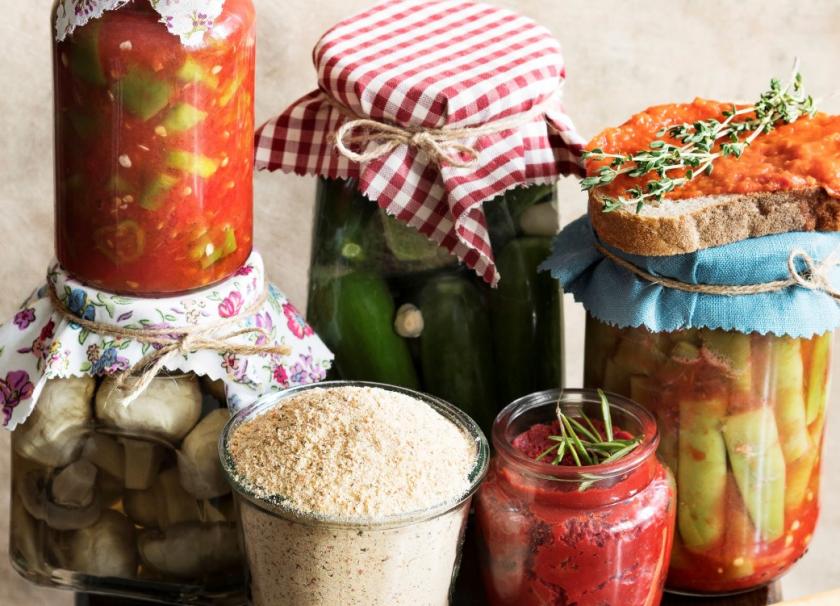
Tips to Stay Safe and Limit Waste
By Mahlea Rasmussen, Education Coordinator
Inspired by Bea Johnson's Zero Waste Home
We are in uncertain times and some of you may be second-guessing some of your zero waste practices and replacing them with safety measures for you and your family. I was proud not to have chemical cleaners in my home and never used plastic gloves - but now those products are being suggested for staying clean and safe. Here are some tips to keep your home safe while working towards more sustainability.
Switch to on-line banking and billing as common practice
Most companies have switched to online methods for billing and banking. Take advantage of these services to limit your contact with outside materials that could be contaminated.
Zero Waste Home, p. 176
You can also go to the following websites to stop some mail from cluttering up your mailbox and limit your contact with outside materials entering your home:
Stop direct mail
Stop credit card and insurance offers
Zero Waste Home, p. 173
Turn off the TV and digital media
In these times of isolation and quarantine, it is easy to turn on the TV and turn off life. Make sure you are taking time away from electronic distractions. Save a little energy and get creative. Take this chance to connect with your family or partner you find yourself quarantined with. A game night, hike or making dinner together are all activities that do not require a screen.
Zero Waste Home, p. 185
Repair it
For the time being, a lot of stores are closed and it is important to limit one's trips out of the home. This takes away the option of simply throwing a needed item away and replacing it. This is a good opportunity to see if you can fix it! If you don't know how to fix the item, there are tons of how-to videos on YouTube and ifixit.com for electronics.
Zero Waste Home, p. 23
Learn how to make it
Due to recent food shortages, and with all of us trying to limit our trips to the grocery store, it may be a more economical option to buy ingredients to make things, like bread. Here are a couple of links for homemade bread from my favorite bloggers, along with a recipe for flour tortillas from Zero Waste Home (p. 71).
Sourdough Tips for the Occasional User
No Knead Artisan Bread
Flour Tortillas
Ingredients
1 1/2 tsp salt
1 tsp baking powder
1/2 cup cold butter
1 cup warm water
Directions
- Combine dry ingredients in a large bowl.
- Incorporate the butter into the mixture and mix with your fingertips until it resembles coarse crumbles.
- Add the water and combine until soft dough forms.
- Separate into 12 small balls.
- Roll out each ball as thinly as possible and cook in a pan over medium heat for 20 seconds on each side.
Preserve It
To help make your trip to the grocery store a little more worthwhile and avoid waste, there are a few things you can do to preserve your perishables.
Dry it - if you are lucky enough to own a dehydrator this is the time to bust it out. Use it to make things like dried fruit, kale chips or jerky. You can also use your oven at a low setting. Check out food-hacks.wonderhowto.com to learn how, and for other great ideas.
Freeze it - Along with soups, broth and berries did you know you could freeze avocado and eggs? Respectfood.com has a list of 15 uncommon and surprising things you can freeze for later.
Refrigerator pickles - if canning intimidates you, try making small batches of pickles. You can also use this method of preserving for other vegetables. I like carrots, jalapeños, and cauliflower. Here is a simple recipe from www.simplyrecipes.com to get you started.
Ingredients
1 small sweet yellow onion
1 cup apple cider vinegar
1 cup water
1/4 cup granulated sugar
1 tablespoon kosher salt
1 1/2 teaspoons pickling spice, homemade or store-bought
- Wash and dry the jars and cucumbers: Wash 2 wide-mouth pint jars and their lids in hot, soapy water. Set them aside to dry.
- Rinse the cucumbers well under cold water, pat them dry, and then set them on a towel to dry completely.
- Slice the cucumbers and onion, then pack them in the jars: With a sharp knife or a mandoline slicer, slice the cucumbers and onion into slices 1/8- to 1/4-inch thick.
- Firmly pack the cucumbers and onions into the jars, fitting in as many as you can without smashing the vegetables. Leave 1/2-inch or so of headspace at the top of the jars.
- Make the brine: In a small saucepan over medium-high heat, bring the vinegar, water, sugar, salt, and pickling spice up to a simmer. Stir occasionally and continue simmering until the sugar and salt are dissolved.
- Pour the brine over the vegetables: If you have a canning funnel, use it here to make it easier to fill the jars. Carefully pour or ladle the hot brine into each jar, filling the jars until the cucumbers and onions are covered. It's ok if a few small pieces poke out the top.
- Cool and refrigerate for 24 hours: Screw on the lids, then let the jars cool to room temperature (about an hour). The cucumbers will start bright green but will become darker and more "pickle-colored" as they cool.
- Place them in the refrigerator. Wait at least 24 hours before eating the pickles to let the flavors develop. Use them within one month.
I hope this inspires you to continue on your sustainable journey and helps keep you and yours safe.
More Co-op News
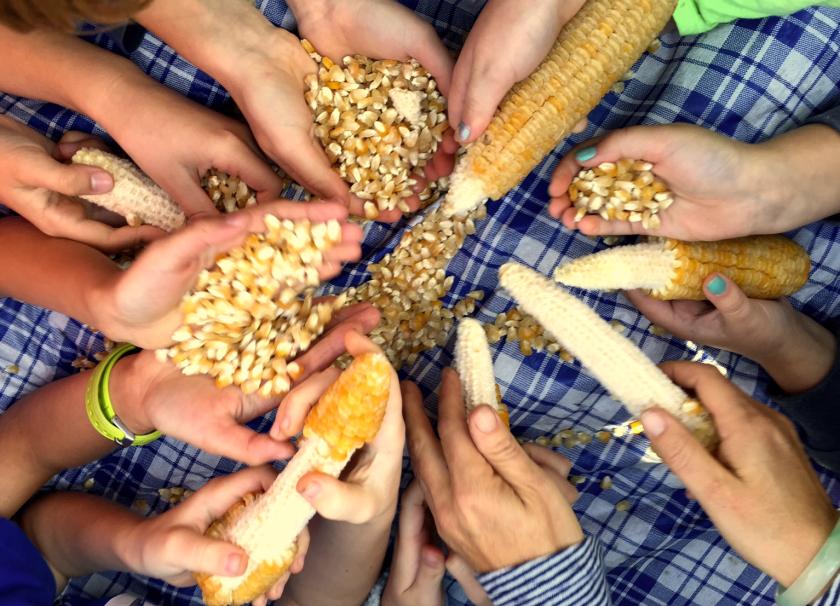
May Change for Good: Our Family Farms
This month, the Ashland Food Co-op is proud to annouce our Change for Good partner, Our Family Farms, an organization dedicated to safeguarding our agricultural heritage and promoting regenerative organic practices.

A Closer Look at Cinco de Mayo
Cinco de Mayo has become synonymous with festivities and delicious Mexican cuisine (and who doesn’t love both of those things?). At the Ashland Food Co-op, it's important for us to approach this celebration mindfully and with a cultural understanding.



March Change for Good: KS Wild
As we step into March, we are thrilled to introduce our Change for Good partner – KS Wild, an organization dedicated to preserving the breathtaking landscapes of Southern Oregon. At the heart of our community lies a shared commitment to sustainability and environmental stewardship, making KS Wild the perfect ally in our ongoing quest for positive change.
What is KS Wild?

February Change for Good Partner: Rogue Climate
As we navigate the challenges posed by climate change, it becomes increasingly vital to support organizations dedicated to creating positive environmental impacts. This February, Ashland Food Co-op proudly introduces Rogue Climate as its Change for Good partner. Join us in supporting their mission to empower Southern Oregon communities most affected by climate change.

January Change for Good: AHS Culinary Arts Program
Hey Co-op community!
As we step into the new year, the Ashland Food Co-op is excited to continue our Change for Good program, and for January 2024, we're shining a spotlight on a program that's close to our hearts (and our stomachs) - the Ashland High School Culinary Arts Program.
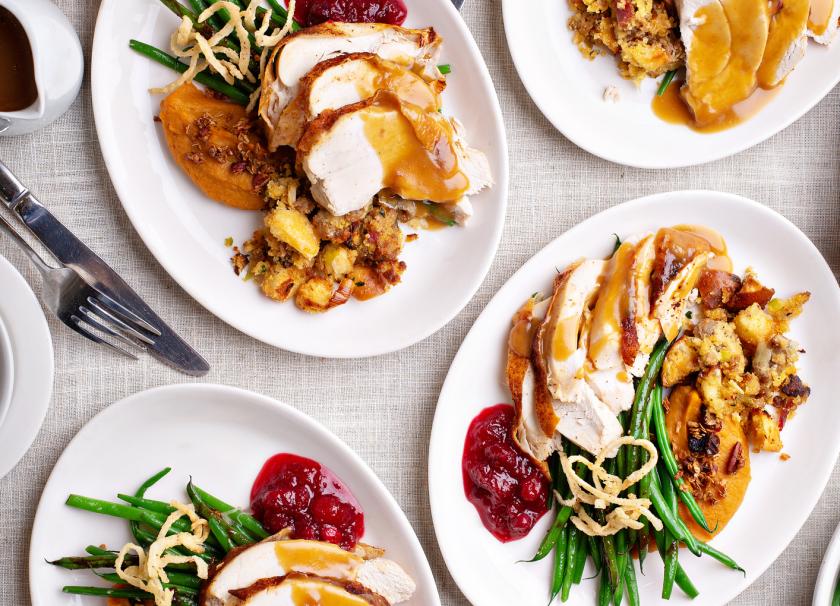
No Hassle Holiday - Thanksgiving Dinner from the Co-op!
This Thanksgiving, let us take the hassle out of your holiday feast preparation!
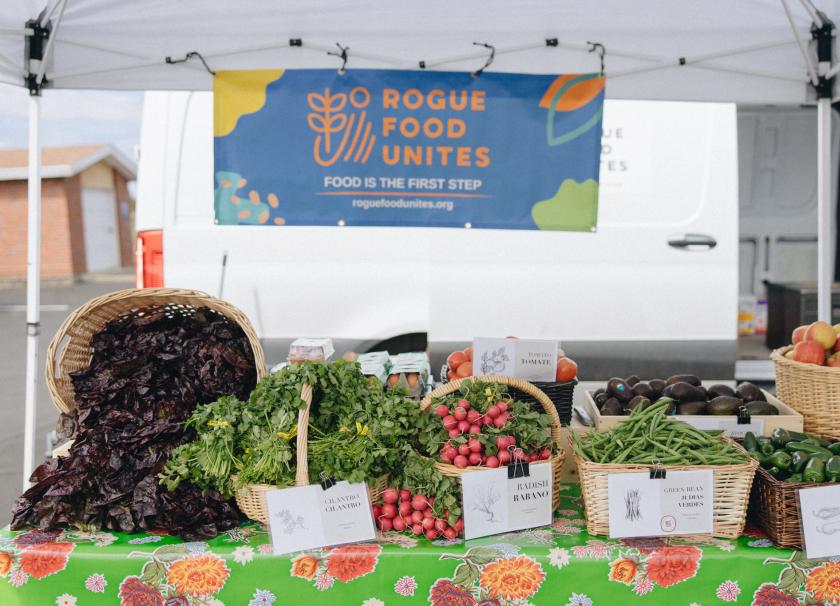
November Change for Good: Rogue Food Unites
Say hello to our November Change for Good partner - Rogue Food Unites!
Rogue Food Unites (RFU) uses food to heal individuals and communities during times of crisis. RFU was formed in 2020 out of the dual disasters of the Almeda and Obenchain fires and the impacts of COVID-19 on local communities. Within a short time, RFU began contracting with the State of Oregon to supply hot meals, food boxes, and solidarity cards in Deschutes, Douglas, Klamath, Josephine, and Jackson Counties.

Meet Nick Hardee, AFC's new GM!
The Co-op Board of Directors and staff are thrilled to welcome Nick Hardee as the new General Manager of the Ashland Food Co-op! We asked Nick to share a little bit about himself so we'll get right to it!

October Change for Good: Center for Non-Profit Legal Services
This October, the Ashland Food Co-op is proud to partner with the Center for Non-Profit Legal Services (CNPLS) for our Change for Good program. All month long, shoppers can round up their purchases to support CNPLS and their mission to provide access to justice.
CNPLS is a non-profit legal aid firm serving low-income and vulnerable community members in Ashland and surrounding areas. Their team of dedicated lawyers and volunteers work to ensure everyone has access to legal help, regardless of their ability to pay.

It's Co-op Month!
OK, you've got us, every month is Co-op Month here at AFC! But every October since 1964, cooperatives of all kinds have celebrated the cooperative difference. Here at the Ashland Food Co-op, we're excited to recognize the history, benefits, and principles behind our own co-op.

September Change for Good: AFC Community Fund
As we enter the beautiful month of September here in Southern Oregon, we're excited to share that our Change for Good partner this month is our very own Community Fund. As many of you know, the Community Fund allows us to support amazing local projects and organizations doing great work right here in Southern Oregon.
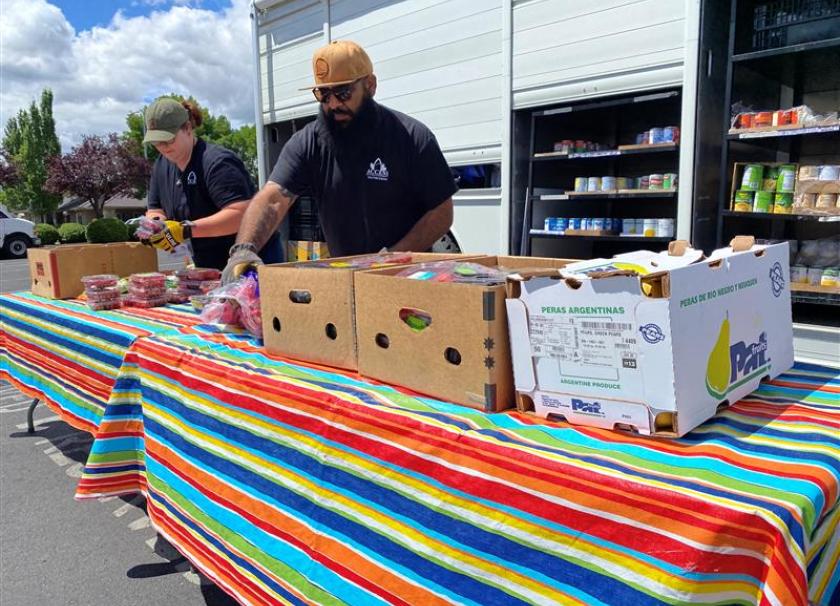
August Change for Good - Partnering with ACCESS to Make a Difference!
We are honored to partner with ACCESS this August - a fantastic organization that has been serving our community for over four decades. ACCESS, which stands for "A Community in Action, Connecting, Empowering, and Strengthening Self-Sufficiency," is dedicated to addressing hunger, homelessness, and poverty in Southern Oregon.

Empowering Our Community: AFC's Community Grants Now Accepting Applications
As part of our ongoing commitment to supporting the local community, AFC is thrilled to announce the that we are accepting applications for our Community Grants program.
Ashland Food Co-op's Community Grants program is designed to foster meaningful change in the Southern Oregon region. Through these grants, we seek to support projects that align with our mission of promoting local and sustainable food systems, addressing food insecurity, and promoting community engagement.
